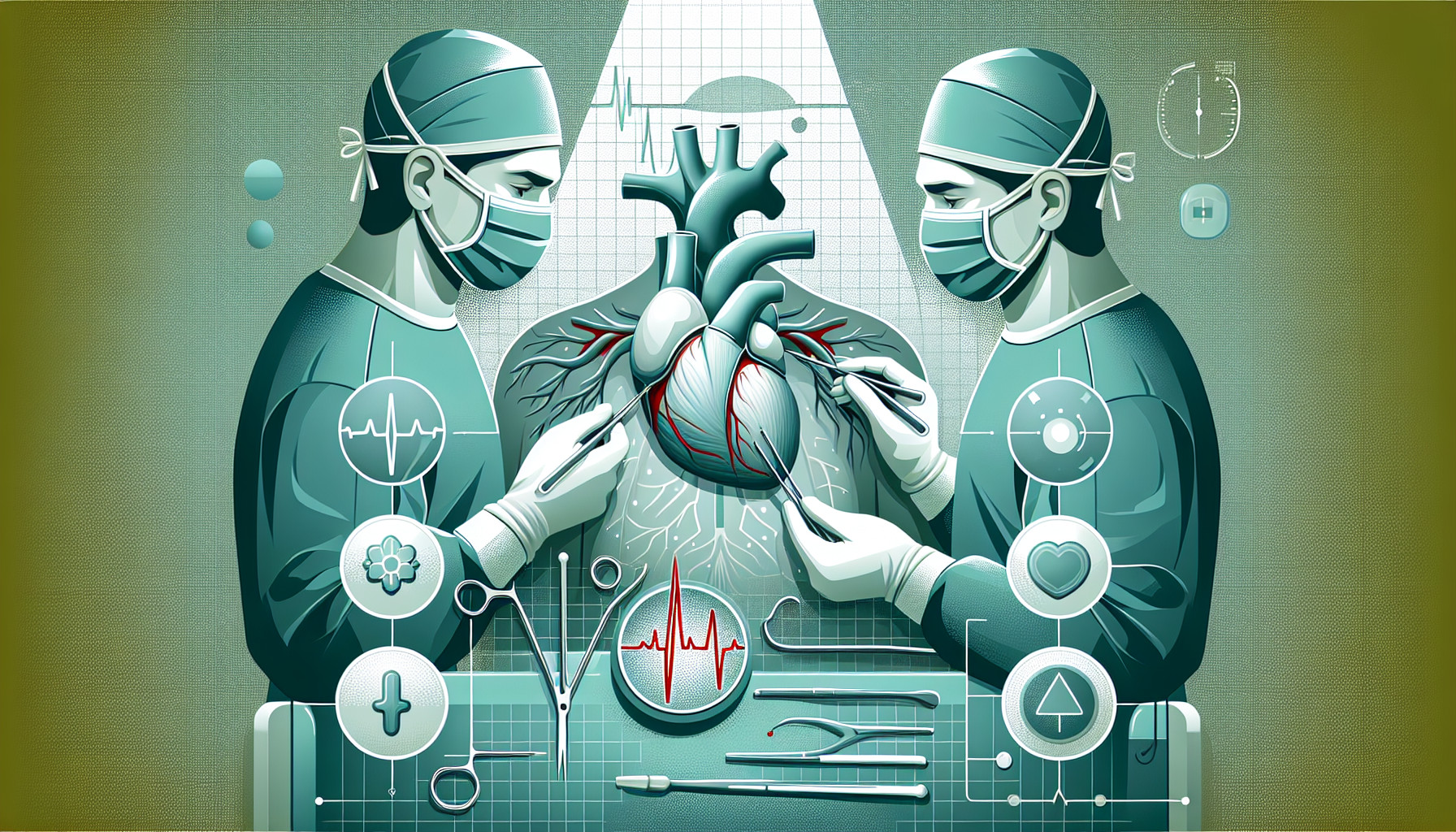Our Summary
This study looked at the surgical outcomes of a specific heart surgery, called valve-sparing root replacement, in patients with two different genetic disorders: Marfan syndrome (MFS) and Loeys-Dietz syndrome (LDS). These disorders can cause problems with the heart’s aorta, and the surgery is designed to fix these issues.
The researchers looked at the medical records of 131 patients who had the surgery between 1988 and 2020. They found that the results of the surgery were pretty similar for both groups of patients, in terms of how many ended up having problems with their aortic valves afterwards or needed more surgery on their aortic valves.
However, there were some differences. Patients with LDS were more likely to experience aortic dissection (a serious condition where the inner layer of the aorta tears) after the surgery. They were also more likely to need further surgeries on their aorta compared to the patients with MFS.
FAQs
- What is the valve-sparing root replacement surgery designed to fix?
- What were the outcomes of the surgery in patients with Marfan syndrome and Loeys-Dietz syndrome?
- Were there any differences in post-surgical complications between patients with Marfan syndrome and Loeys-Dietz syndrome?
Doctor’s Tip
One important tip a doctor might tell a patient about aortic valve replacement is to follow a healthy lifestyle after the surgery. This includes regular exercise, a balanced diet, not smoking, and managing stress. These lifestyle changes can help prevent complications and improve the long-term success of the surgery. Additionally, it is important for patients to attend follow-up appointments with their healthcare provider to monitor their heart health and make any necessary adjustments to their treatment plan.
Suitable For
Overall, patients with Marfan syndrome and Loeys-Dietz syndrome who are experiencing problems with their aortic valves are typically recommended aortic valve replacement. These surgeries are often recommended to prevent further complications such as aortic dissection or heart failure.
Timeline
Before aortic valve replacement:
- Patient undergoes diagnostic tests to determine the severity of the aortic valve disease.
- Patient consults with a cardiac surgeon to discuss treatment options.
- Patient may undergo pre-operative evaluations and tests to ensure they are healthy enough for surgery.
- Patient may need to make lifestyle changes or take medications to manage symptoms before surgery.
After aortic valve replacement:
- Patient undergoes the surgical procedure to replace the damaged aortic valve with a new artificial valve.
- Patient is monitored closely in the hospital post-surgery for any complications.
- Patient may need to participate in cardiac rehabilitation to aid in recovery.
- Patient will have follow-up appointments with their healthcare team to monitor their progress and adjust medications as needed.
- Patient may need to make long-term lifestyle changes to maintain heart health, such as eating a heart-healthy diet and engaging in regular exercise.
What to Ask Your Doctor
- What is the reason for recommending aortic valve replacement?
- What are the risks and benefits of valve-sparing root replacement surgery for my specific condition?
- How many of these surgeries have you performed, and what are your success rates?
- What is the expected recovery time and rehabilitation process after the surgery?
- Are there any alternative treatment options available for my condition?
- What lifestyle changes or medications will I need to take after the surgery?
- What are the potential long-term complications or risks associated with this surgery?
- How often will I need follow-up appointments and monitoring after the surgery?
- Are there any restrictions on physical activity or diet that I should be aware of post-surgery?
- What should I do if I experience any concerning symptoms after the surgery?
Reference
Authors: Seike Y, Yokawa K, Koizumi S, Masada K, Inoue Y, Morisaki H, Morisaki T, Sasaki H, Matsuda H. Journal: Eur J Cardiothorac Surg. 2022 May 27;61(6):1318-1325. doi: 10.1093/ejcts/ezac050. PMID: 35213703
